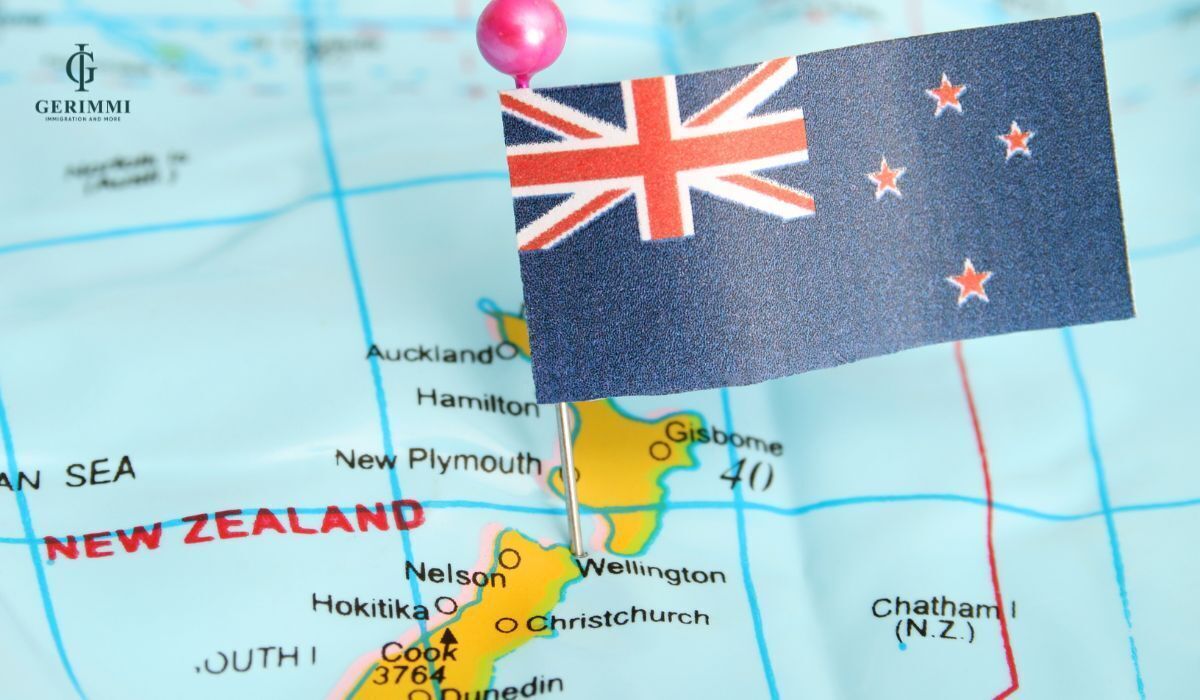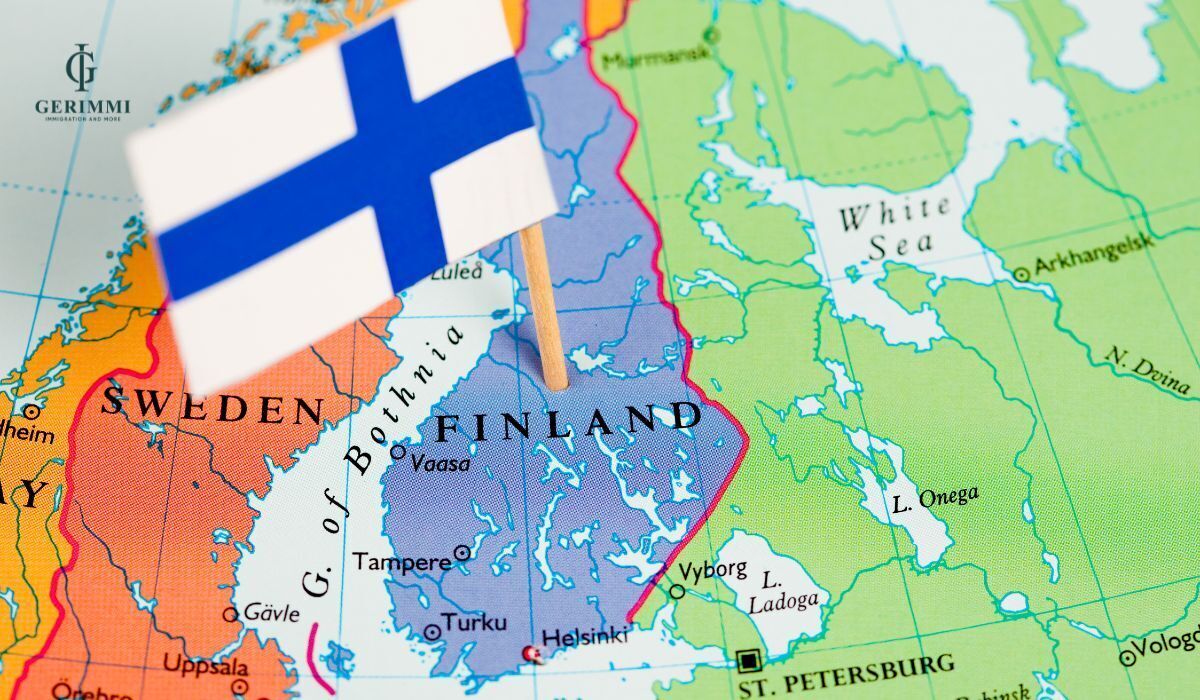When choosing a country to study abroad, cost is always one of the top concerns. Besides the quality of training, living environment and job opportunities after graduation, tuition and living expenses will largely determine whether you can pursue a long-term study abroad journey or not.
I. Studying abroad - Is cost the biggest barrier?
Studying abroad is an opportunity to reach out to the world, access high-quality education and expand career opportunities. However, the cost of studying abroad is a factor that makes many people hesitate. But is cost really the biggest barrier?
1. The cost of studying abroad is more than just tuition fees.
When it comes to the cost of studying abroad, many people only think about tuition fees. In reality, you also need to consider living expenses, visa fees, health insurance, airfare, and other expenses. For example,Australian study fees can range from 600 million to more than 1 billion VND per year, while the cost of studying in New Zealand is usually a little lower but still needs a steady budget.
2. Not every country is expensive
Study in Germany for freeIf you study at a public school, you only have to pay a small administrative fee.Finlandtuition fees range from 6,000 - 18,000 EUR/year, but there are manyPartial and full scholarships. On the contrary, Australia and New Zealand have higher tuition fees, but in return they have a modern learning environment, good part-time work and settlement opportunities.

3. The high cost can still be worth it
High tuition fees are not always a disadvantage.Study in AustraliaAlthough expensive, the return is post-graduation employment opportunities, international qualifications and an open immigration policy. New Zealand is similar, with a high quality of life and a prestigious education system. If you view studying abroad as a long-term investment, the high cost is reasonable.
4. It's all about strategy, not just budget
The question should not be "which country is the cheapest to study abroad?" but "which country best fits your budget and goals?". With limited financial resources, you may consider study in Germany or huntFinnish Scholarship. If there is a possibility of larger investment,Australia or New Zealand will be a more comprehensive choice of education and career opportunities.
II. Cost comparison table of 4 countries (2025)
|
Criteria |
Australia |
New Zealand |
Virtue |
Finland |
|
1. Average tuition fee/year |
20,000 - 45,000 AUD (~320 - 720 million VND) |
20,000 - 38,000 NZD (~300 - 600 million VND) |
0 - 3,000 EUR (public school, ~0 - 80 million VND) |
6,000 - 18,000 EUR (~160 - 480 million VND) |
|
2. Living expenses/year |
20,000 - 27,000 AUD (~320 - 430 million VND) |
15,000 – 25,000 NZD (~230 - 390 million VND) |
8,400 - 12,000 EUR (~230 - 330 million VND) |
8,400 - 12,000 EUR (~230 - 330 million VND) |
|
3. Scholarship opportunities |
20-100% scholarships, highly competitive |
Government and school scholarships, 10-100% |
DAAD Scholarship, PhD Support Program |
50-100% scholarships, common at public universities |
|
4. Work part-time & settle down |
Work 40 hours/2 weeks; easy to settle as a skilled worker |
Work 20 hours/week; open settlement policy |
Work up to 20 hours/week; have a plan to stay after graduation |
Work 25 hours/week; settlement is harder but there is a research/PhD path |
III. Detailed cost analysis for each country
1. Australia - High Price but Worth the Money?
Study in Australia is always in the top choices thanks to the world-leading quality of education, modern facilities and a multicultural, safe living environment. However, those benefits come with a fairly high cost, especially in big cities like Sydney, Melbourne or Brisbane.
- Tuition: Average from 20,000 - 45,000 AUD/year, equivalent to about 320 - 720 million VND. Fields of study such as medicine, engineering, law or MBA often have higher than average tuition fees. Postgraduate fees are also higher than undergraduate fees.
- Cost of living: Varies from AUD 20,000 - 27,000/year (~VND 320 - 430 million). This cost includes housing, food, transportation, OSHC health insurance (mandatory) and incidentals such as books and internet. Students living in small cities can save 10-20% of the cost.
- Scholarship: Australian universities often offerScholarships from 20% to 100% of tuition fees for international students with good academic records or convincing essays. In addition, some government scholarship programs such as Destination Australia, Australia Awards are also great opportunities.
- Work & settlement: International students are allowed to work 48 hours every 2 weeks during school term and full time during holidays. After graduation, you can apply for 485(Post-Study Work Stream) to stay and work for 2-6 years, depending on the area of study and level of study. Australia's settlement policy is quite open to priority industries and development-encouraged regions.

2. New Zealand - Ideal environment, cheaper cost than Australia
Studying in New Zealand is a worthy choice if you want to enjoy a British standard education at a more reasonable cost than Australia, while living in a country with a great safety index, friendliness and natural environment.
- Tuition: From 20,000 - 38,000 NZD/year (~300 - 600 million VND), lower than Australia but the training quality is still globally recognized. Industries such as information technology, education, tourism and engineering are very popular here.
- Cost of living: Varies from 15,000 - 25,000 NZD/year (~230 - 390 million VND). Big cities like Auckland have a higher cost of living than Wellington or Dunedin. However, students can save money by sharing a room, renting a house in the suburbs or cooking at home.
- Scholarship: The New Zealand government and universities offer a wide range ofScholarships from 10% to 100% of tuition fees, especially at the postgraduate level and in priority development fields. Some schools also offer scholarships to support living expenses or free dormitories.
- Work part-time & settle down: International students are allowed to work 20 hours/week during school and full-time during vacations. After graduation, you can apply for a 1-3 year work visa and have the opportunity to settle if you work in an occupation on the priority skills list.

3. Germany - Is free tuition real?
Studying in Germany for free is absolutely true if you study at a public university. Germany is the only country in Europe that allows international students to study at university without paying tuition fees – a preferential policy that has been in place since 2014 and is still maintained.
- Tuition: Most bachelor's and master's programs at public universities are free tuition, you just need to pay an administrative fee of 250 - 350 EUR/term(~7 - 10 million VND). Some English-language programs or private schools may charge tuition fees, but these are still lower than the average in English-speaking countries.
- Cost of living: From 700 - 1,200 EUR/month (~18 - 32 million VND), including rent, food, transportation and insurance. The cost of living in Berlin, Leipzig or Dresden is significantly lower than in expensive cities like Munich or Hamburg.
- Scholarship: The DAAD is the largest source of scholarships, supporting the study and living costs of international students. In addition, many schools also have their own scholarship funds for students with good academic performance or participating in research.
- Blocked account: To apply for a German student visa, you are required to have Blocked account worth 11,208 EUR/year(~300 million VND) to prove ability to pay living expenses.
- Work part-time & settle down: Students are allowed to work 120 days/year (full-time) or 240 days (part-time). After graduation, you can stay in Germany for 18 months to find a job. If you find a suitable job, you can switch to a work visa or apply for a green card (EU Blue Card).

4. Finland - The "Rising Star" of Nordic Education
Finland is gaining increasing attention for its high-quality education, international academic environment and attractive scholarship policies. Although not tuition-free like Germany, Finland is still an ideal destination for those looking for a balance between reasonable costs and real learning opportunities.
- Tuition: Tuition fees for international students range from6,000 - 18,000 EUR/year(~160 – 480 million VND), depending on the program and school. Technology, design, education and innovation are the strengths of this country.
- Cost of living: Around 700 - 1,000 EUR/month (~18 - 27 million VND). Although it is a Nordic country, the cost of living in Finland is generally much lower than in Sweden, Norway or Denmark. Some student cities like Tampere and Turku are more affordable than Helsinki.
- Scholarship: Finland offers a wide range of programsScholarships from 50% to 100% of tuition fees, based on academic performance and individual ability. Some schools even waive the first year of tuition for excellent students.
- Work part-time & settle down: International students are allowed to work up to 30 hours/week. After graduation, you can apply for a visa extension of 1-2 years to find a job and switch to a work visa. Although the settlement policy is not as open as Germany or Australia, there is still a settlement path through work or research.

IV. In-depth comparison by criteria
1. Tuition comparison (data table)
|
Nation |
Average tuition fee/year |
Additional notes |
|
Australia |
20.000 - 45.000 AUD |
Medicine and engineering have high tuition fees; graduate school is more expensive |
|
New Zealand |
20.000 - 38.000 NZD |
Cheaper than Australia; international standard training program |
|
Virtue |
250 - 350 EUR/term |
Public schools are almost tuition-free. |
|
Finland |
6,000 - 18,000 EUR |
Depends on the major and school; scholarships are common. |
2. Compare the cost of living
|
Nation |
Cost of living/year |
City of influence |
Additional notes |
|
Australia |
20.000 - 27.000 AUD |
Sydney, Melbourne |
Students are required to purchase compulsory OSHC insurance (~AUD 500–600/year) |
|
New Zealand |
15.000 - 25.000 NZD |
Auckland, Wellington |
The standard of living is “softer” than Australia, but can decrease if living in a small area |
|
Virtue |
8,400 - 14,400 EUR |
Munich, Berlin |
Big cities are more expensive; dormitories are often cheaper |
|
Finland |
8,400 - 12,000 EUR |
Helsinki, Tampere |
Reasonable living standard compared to Northern Europe, students get reduced bus and food costs |
3. Compare scholarship opportunities - free - PhD study
|
Nation |
Scholarship |
Free tuition |
PhD opportunities |
|
Australia |
25% - 100% tuition |
✗ (with big scholarship) |
Many PhD scholarships (Fully-funded) |
|
New Zealand |
10% - 100% tuition |
✗ |
Yes, but highly competitive |
|
Virtue |
DAAD, school scholarships |
Public |
Easy to get research scholarships, free PhD |
|
Finland |
50% - 100% tuition |
✗ |
Some schools fully support PhD degrees |
4. Compare the ability to work part-time and settle down after graduation
|
Nation |
Overtime (hours/week) |
Stay after graduation |
Settlement opportunities |
|
Australia |
48 hours/2 weeks |
2 - 6 years |
High, especially for industries with labor shortages |
|
New Zealand |
20 hours/week |
1 - 3 years |
Clear roadmap, high skill priority |
|
Virtue |
120 days/year |
18 months |
Easy to switch to work visa |
|
Finland |
30 hours/week |
1 - 2 years |
There is a settlement path through employment |
V. Frequently Asked Questions
- Is it true that studying in Germany is 100% tuition-free?
Yes, if you study at a public university, tuition fees are almost 100% free even if you are an international student. However, you will still need to pay an administrative fee of around 250–350 EUR/semester, which covers your student card, public transport and student services.
- How much financial proof is required to study in Australia?
Yes. You need to demonstrate sufficient funds to cover tuition fees + living expenses for at least 12 months, as required by the subclass 500 visa. Specifically:
- Tuition: according to the admission letter.
- Living expenses: at least 24,505 AUD/year (updated 2025).
- Can be proven through: savings book, guarantee paper, family income.
- How does the cost of living in New Zealand compare to Australia?
About 10-20% lower depending on the city.
- In New Zealand: average 15,000 - 25,000 NZD/year (~230 - 390 million VND).
- In Australia: from 20,000 - 27,000 AUD/year (~320 - 430 million VND).
New Zealand has cheaper rent and food costs, especially in cities like Dunedin or Hamilton.
- Is it difficult to get a scholarship to study in Finland?
It's not too difficult, if you have a good academic record and prepare your motivation letter carefully.
- Finland offers scholarships from 50% to 100% of tuition fees.
- Some schools even exempt 100% of the first year of study for excellent students.
- Highest opportunities at undergraduate and master levels, especially in IT, business, education.
Conclusion
Cost is not the only barrier, nor should it be the only factor when choosing a study abroad destination. Each country has its own advantages: Germany stands out for its free tuition policy, Finland offers generous scholarships, New Zealand has a friendly environment, and Australia leads the way in terms of settlement and career development opportunities.

